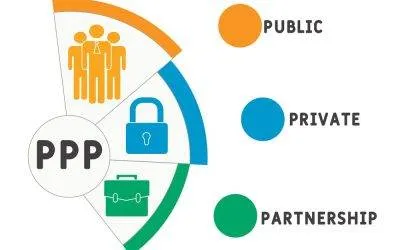Pakistan’s Investment Policy 2023: Creating an Enabling Investment Environment
The Investment Policy 2023 has been formulated to facilitate and invigorate investment, both domestic and foreign, within Pakistan. Its purpose is to establish a comprehensive framework that fosters a favorable business climate, encouraging investments in the nation’s economy.
The Vision and Focus:
Aligned with “Pakistan Vision 2025,” the Board of Investment (BOI) aims to position Pakistan among the top 10 global economies by 2047. This vision seeks to elevate Pakistan to an upper middle-income nation through balanced infrastructure development. The Strategic Trade Policy Framework (STPF) 2020-2025 and Pakistan Vision 2025 stress the role of foreign direct investment (FDI) in overcoming challenges related to food security, health, energy, and geopolitical issues. The Pakistan Investment Policy 2023 (PIP 2023) acknowledges global economic shifts and the post-pandemic landscape while maintaining its core objective: attracting investments that drive value addition, employment opportunities, and exports.
Why Choose Pakistan?
Investors are drawn to Pakistan due to its persistent commitment to appealing investment policies, strategic location, rich natural resources, and a skilled workforce. The nation follows a liberal investment regime. The goals outlined in Pakistan Vision 2025 and STPF 2020-2025 prioritize high-quality FDI that advances the economy through export-oriented, import-substituting, and efficiency-seeking ventures. Integration with global value chains is a focal point, aiming to uplift Pakistan to an upper-middle-income status. PIP 2023 introduces innovative strategies to enhance economic complexity and boost participation in global value chains.
Building on Prior Success:
Building upon the foundations laid by the Investment Policies of 1997 and 2013, PIP 2023 is a progression. The 1997 policy expanded investment beyond manufacturing to services, social sectors, infrastructure, and agriculture. The 2013 policy improved the investment climate by aligning with national policies and enhancing ease of doing business. PIP 2023 advances these successes, addressing new challenges and opportunities, creating an environment conducive to both local and foreign investment.
Key Objectives:
- PIP 2023 addresses economic priorities in a changing global landscape, promoting balanced growth.
- The policy aligns with Sustainable Development Goals, promoting inclusive growth, gender equality, and responsible practices.
- It seeks high-quality FDI for trade balance, job creation, and regional development, aiming for a 20% investment to GDP ratio.
- The policy fosters a transparent and efficient business environment while safeguarding investors.
- PIP 2023 diversifies exports through value-added FDI, reversing decreasing economic complexity.
Strategic Focus
Based on strategies outlined, PIP 2023 targets FDI in sync with domestic investors, strengthening value chains and linkages. Fiscal and non-fiscal incentives will bolster these efforts, tracked by performance indicators.
Attracting Foreign Investment: Pakistan’s Open Investment Regime
Pakistan has positioned itself as an attractive destination for foreign investment, boasting an open investment regime that sets it apart from regional competitors. Notably, many sectors permit foreign investors to enter without the need for pre-screening or approval. Rather, the pathway for foreign investment lies in enterprise registration, aligning with the provisions of the Companies Act 2017. Additionally, foreign investors operating through foreign companies have the option to establish branch or liaison offices in Pakistan, a move that further streamlines their presence and operational activities within the country.
Facilitating Investor Engagement
Pakistan stands committed to offering robust support and facilitation to investors. The nation has established a One Window facility, a singular point of contact ensuring seamless operational proceedings. A suite of online systems, including the Branch / Liaison Management Information System (“BLMIS”) and the Special Economic Zones Management Information System, has been put in place to simplify application processes and payments. This digital infrastructure not only enhances transparency but also fosters efficiency. To address concerns and provide guidance, a Business Matchmaking module and an online helpdesk have been introduced, dedicated to investor facilitation and grievance redressal.
Enhancing Business Processes
With a focus on expediting company registration, Pakistan has embraced digitization and facilitation desks, leading to swifter registration procedures. The Pakistan Regulatory Modernization Initiative (“PRMI”) further underscores the nation’s dedication to improving regulatory quality and coherence. This initiative encompasses the establishment of a National Regulatory Delivery Office, a pivotal step towards ongoing reform. Moreover, “investor aftercare initiatives” have been strategically designed to bolster crucial investment projects and nurture local suppliers, thereby strengthening supply chains.
Enabling Investor-Friendly Environment
Access to utility services has been streamlined to ensure swift provision, bolstering investor confidence. Additionally, concerted efforts are directed towards supporting small and medium enterprises (“SMEs”), fostering linkages with private domestic investment. Pakistan’s comprehensive and investor-friendly visa policy has been crafted to facilitate easy access to counselor services, thus actively promoting investment attraction. Under the purview of the Foreign Investment (Promotion and Protection) Act, 2022, the Federal Government holds the authority to designate qualified investments, granting them fitting incentives and safeguards within Pakistan.
Safeguarding Investor Rights
With unwavering commitment to internationally accepted investment protection standards, Pakistan prioritizes the safeguarding of investor rights. Measures are in place to mitigate the adverse effects of future policy shifts on existing investments. Foreign investors are granted most favored nation and national treatment, ensuring fair and non-discriminatory expropriation for public purposes, accompanied by equitable compensation. Notably, foreign investors possess the autonomy to raise local or foreign loans, repatriate funds, and transfer profits in freely usable currency.
Dispute Resolution and Investor Grievance Mechanism
Pakistan stands as a signatory to several international dispute settlement agreements, reaffirming its dedication to a fair investment landscape. To address investor grievances, the nation has established an Investor Grievance Redressal System, bolstered by the presence of the Investment Ombudsman. This institutional infrastructure aligns with international investment agreements and regulations, fostering a conducive environment for dispute resolution.
Elevating Intellectual Property Rights
Acknowledging the significance of intellectual property rights, Pakistan has introduced specialized Intellectual Property Tribunals, ensuring efficient adjudication of cases. These tribunals form a part of upgraded Intellectual Property Rights policies, characterized by enhanced penalties for violations.
Incentivizing Investment
The Government of Pakistan proactively promotes investment within its priority sectors and activities by offering both fiscal and non-fiscal incentives. These incentives are meticulously reviewed and updated to align with public policy objectives, ensuring their continued effectiveness. Designed on principles of transparency and performance-based allocation, these incentives encompass a range of benefits such as investment tax allowances, tax credits, accelerated depreciation, reduced tax rates, and exemptions from indirect taxes and duties.
Targeted and Sector-Specific Incentives
Investors can avail themselves of exemptions on income and corporate taxes, as well as import duties on machinery, raw materials, and research and development. These incentives extend beyond taxes, providing comprehensive support to investments. The Government conducts thorough sectoral analysis to identify priority sectors, drawing insights from successful regions like ASEAN Member States. This practice aids in formulating and implementing incentive policies that truly drive growth.
Strategic Focus on Key Sectors
Emphasizing high technology sectors, efficiency-seeking ventures, and export-oriented investments, Pakistan’s investment incentives are strategically tailored. Attention is directed towards investments of national and strategic importance, such as medical devices and pharmaceuticals. Furthermore, location-based incentives are instituted to promote investment in under-developed regions, encouraging industrial activities in designated zones.
Enhancing Investment Climate
Enterprises operating within Special Economic Zones (“SEZs”) are granted a range of benefits, including tax holidays and duty exemptions on the import of machinery, equipment, and more. The Federal Board of Investment (“BOI”) and sub-national Investment Promotion Agencies (“IPAs”) play instrumental roles in managing incentives, advising the government on incentive policies, ensuring investor compliance, and overseeing the effective implementation of incentive programs.

Let’s connect and discover how we can help your business thrive

Why Choose Us?
- Expertise: With years of experience in the field, we have developed a strong expertise in various domains, including accounting, taxation, auditing, and corporate advisory.
-
Client-Centric Approach: We believe in building long-term relationships with our clients based on trust, integrity, and transparency.
-
Comprehensive Services: Whether you are a small business owner, an established corporation, or an individual seeking tax advice, we offer a wide range of services to cater to your needs. From tax planning, audit,corporate adviosry and compliance to financial statement preparation, our holistic approach ensures that all aspects of your financial well-being are taken care of.
-
Local Market Knowledge: Being a local firm, we have an in-depth understanding of the Pakistani market dynamics, regulations, and cultural nuances. This local expertise allows us to offer valuable insights and guidance that can give your business a competitive edge.

Expert insights and industry news
Public-Private Partnerships (PPPs) in Pakistan: A Catalyst for Development
Public-Private Partnerships, often abbreviated as PPPs, are collaborative agreements between the government and private sector entities.
World Bank Initiatives in Pakistan
The World Bank is an international financial institution that provides financial and technical assistance to developing countries worldwide
Unlocking Pakistan’s Infrastructure Potential
Pakistan’s economy has been on an upward trajectory in recent years, and it offers a strategic location for trade due to its proximity to China, India, and Central Asia.
About Us
Usman Rasheed & Co Chartered Accountants is a leading financial advisory and audit firm in Pakistan, having offices in Islamabad, Quetta, Lahore, Karachi, Peshawar & Gilgit. The firm is providing Audit, Tax, Corporate, Financial, Business, Legal & Secretarial Advisory services and other related assistance to local and foreign private, public and other organizations working in Pakistan




